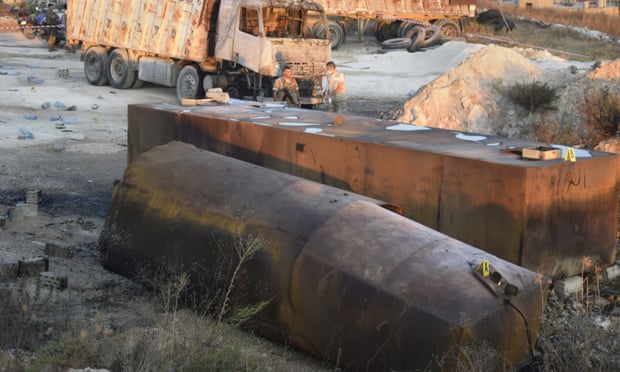At least 20 people died and dozens were injured in a fuel tank explosion in Lebanon

Arab weather - At least 20 people were killed and 79 others were injured in a fuel tanker explosion in the Akkar region of northern Lebanon, according to what the International Committee of the Red Cross announced, today, Sunday (August 14).
Military and security sources reported that the Lebanese army had seized a fuel tank hidden in the town of Al-Talil and was in the midst of delivering gasoline to residents when the explosion occurred, Reuters reported.
Witnesses said about 200 people were nearby at the time of the explosion. There were differing accounts of the cause of the explosion.
A security source said, "Large numbers of people rushed, and the differences between them led to shooting that hit the gasoline tank, which led to its explosion." He pointed out that among the dead were members of the army and security forces.
Meanwhile, the local Al-Jadeed satellite channel, quoting eyewitnesses, reported that someone lit a lighter as the cause of the explosion.

(burning fuel tanks)
Abd al-Rahman, whose face and body were covered with gauze as he lay in al-Salam Hospital in Tripoli, was among those queuing to get some precious petrol. “There were hundreds gathered there, right next to the tank, and only God knows what happened to them,” he said.
The Red Cross said its teams were still searching the site of the blast and posted on Twitter a picture of several people walking into a large crater.
Angry residents in Akkar, one of Lebanon's poorest regions, gathered at the site and set two trucks on fire, according to a Reuters witness.
Rashid Maksoud, an official at the Islamic Medical Association, said that some of the wounded were taken to hospitals in nearby Tripoli, while others were sent to Beirut.
Dr. Salah Ishaq of Al-Salam Hospital said that the majority of the injured are in serious condition. We cannot accommodate them, we do not have the capabilities. It's a very bad situation."
Yassin Mitlij, an employee at Akkar Hospital, said the facility received at least seven bodies and dozens of burn victims. "The bodies are so charred that we cannot identify them," he told AFP.
He said the hospital had to turn away most of the injured because it was unable to treat severe burns.
It is noteworthy that Lebanon suffers from what the World Bank describes as one of the worst economic crises the world has witnessed since the 1950s, and suffers from poverty and a shortage of basic materials such as medicine and fuel.
On Saturday, the Lebanese army said it had confiscated thousands of liters of gasoline and diesel that distributors were storing at pumps across the country, and last week witnessed several tanker hijacking incidents.
The Akkar explosion comes less than two weeks after Lebanon commemorated the first anniversary of the bombing of the port of Beirut last summer, when, on August 4, 2020, it detonated stored materials from ammonium nitrate fertilizer, and the explosion left large areas of the capital that look like a war zone. It killed more than 200 people.
Arabia Weather App
Download the app to receive weather notifications and more..



